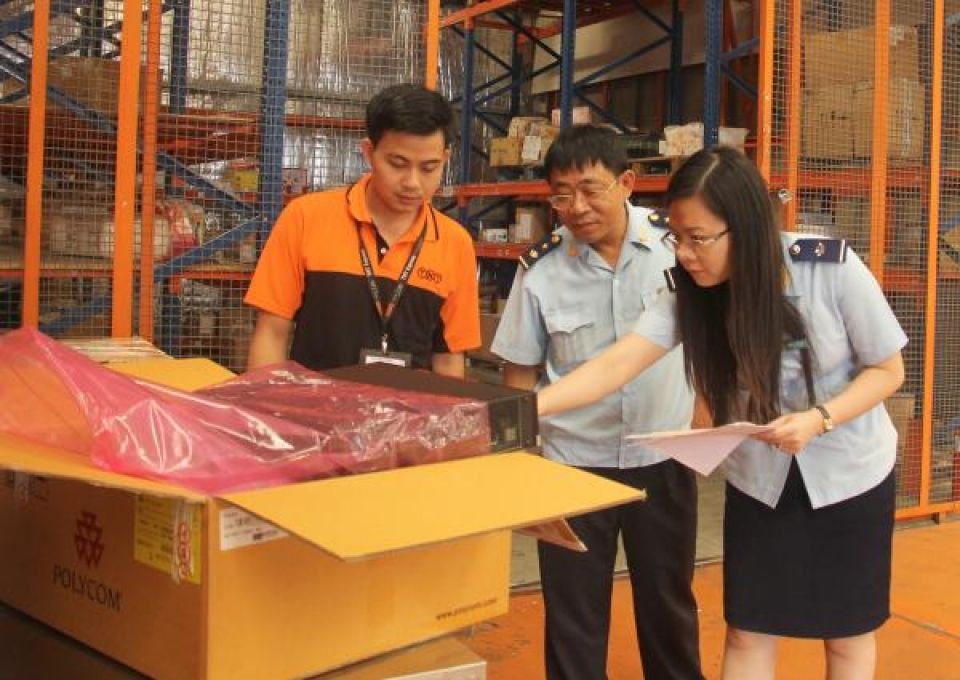Problems in the handling of tax debts
In the process of remission of tax debts, late payments and fines, there are still many enterprises which can not be subject to tax debt relief under Circular 179/2013 / TT-BTC because they are not State-owned enterprises.

Under current regulations, all enforcement measures and tax remission are applied for the amount of tax arrears, late payment, tax debts and fines more than 10 years.
On the other hand, with regard to the fulfillment of tax obligation, many enterprises are exempted from taxes but when they terminate operations or go bankruptcy, they shall pay taxes under current regulations.
Infeasible coercive measures
In order to recover tax debts, the Hanoi Customs Department has applied many measures to implement tax administrative decisions. Statistics showed that from 2011 to 2016, the number of enterprises subject to coercive measures increased from 5 enterprises to 281 enterprises with a tax amount from 1 billion vnd to 765.2 billion vnd. In 2016, the Hanoi Customs Department implemented tax enforcement measures such as debt classification and coordination to apply coercive measures. Specifically, the Hanoi Customs Department issued 32 decisions on deducting money from accounts of enterprises; 36 decisions on suspension of Customs procedures, 105 official dispatches to declare invalid invoices and 108 official dispatches from state agencies for revocation of business registration certificates. As a result, the collection of tax debts reached 28.2 billion vnd out of 44.79 billion vnd, equivalent to 62.96% of the assigned target.
However, the application of enforcement measures has still faced many difficulties. For example, it is clearly stated in the Law that the State authorities have the right to conduct blockade of enterprises’ accounts in State treasuries, commercial banks or other credit institutions. However, the decision to implement coercive measures takes much time, so that taxpayers have enough time to withdraw deposits from their account before enforcement measures.
One of the measures to enforce tax administrative decisions is to distrain properties and auction these properties. However, the reality shows that the assessment of legal assets of organizations and individuals who owe taxes is very difficult due to lack of legal basis and regulations.
Under current regulations, when Customs officers have enough information and legal basis to apply coercive measures to collect money, they have the right to request local Tax Departments to issue the enforcement decision to deduct tax debts from enterprises’account. However, in the case where enterprises escape or are missing, tax authorities can not accomplish tax refund dossiers. Therefore, Customs officers can not carry out the above coercive measures.
Blockade of accounts to be proposed
Regarding shortcomings in tax administration, the Hanoi Customs Department is proposing to the competent authorities to amend, supplement and revise the system of legal documents on taxes. In particular, the Hanoi Customs Department also proposed to remove tax debts arising of non-State owned enterprises before 1st July 2007 under the provisions of the Ministry of Finance’s Circular 179/2013 / TT-BTC.
Regarding the coercive execution of tax administrative decisions, Customs officers have enough information and legal basis to apply coercive measures to collect money, they should have the right to immediately deduct deposits of enterprises and apply the measure to block enterprises’ account after verification. In addition, there should be specific instructions for application of coercive measures and auction of distrained properties, so that Customs officers can effectively apply them.
Source: http://customsnews.vn
